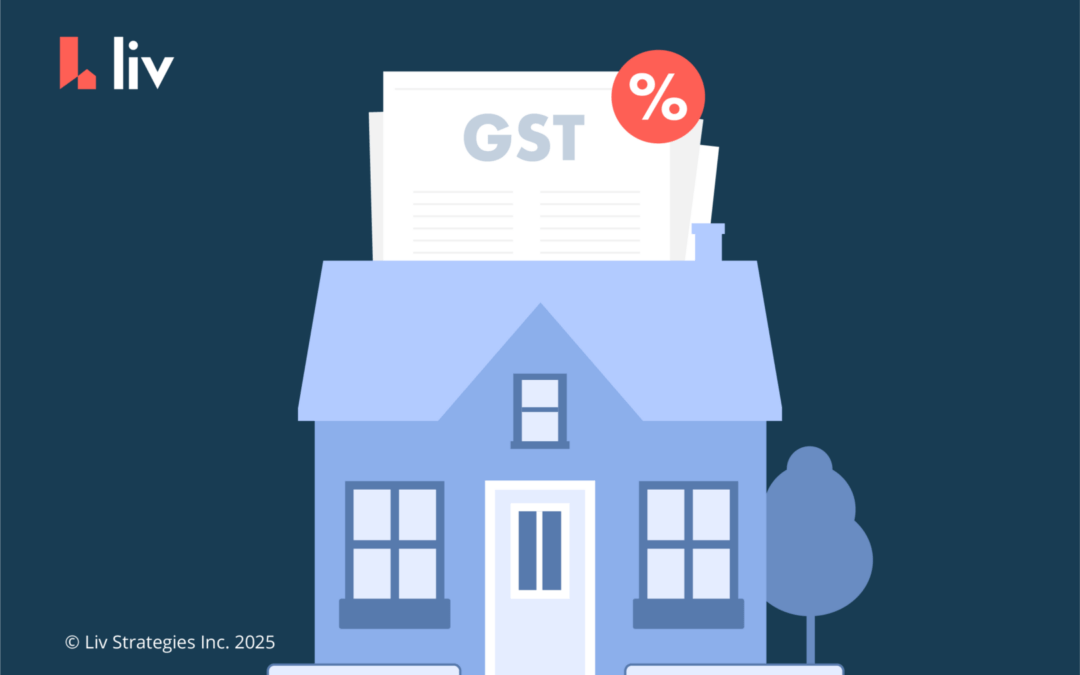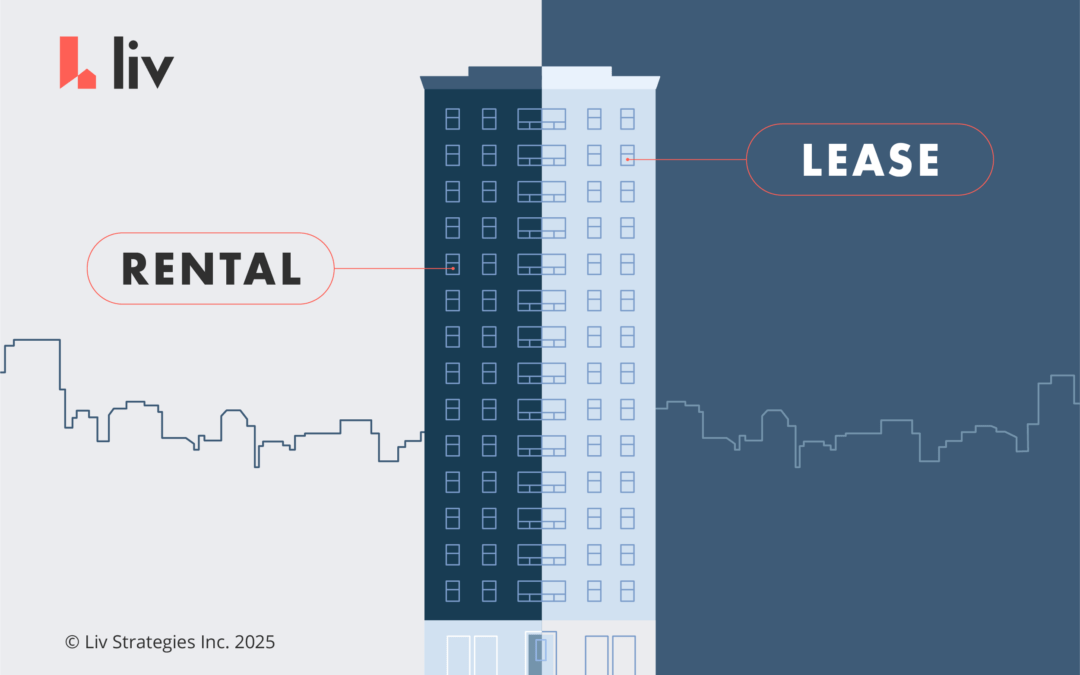Moving to a new country, especially as an international student, can be both thrilling and daunting. Canada, known for its welcoming atmosphere and high-quality education, is a popular destination for students from around the world. However, navigating the ins and outs of settling into a new country can be overwhelming to say the least. This guide aims to provide international students with essential information and tips to make their transition to Canada as smooth as possible. From setting up a bank account to finding short-term and long-term rental accommodation, liv.rent has you covered with advice every step of the way.
Rent your perfect home with liv.rent
Search houses, rooms, condos and apartments for rent. Chat instantly with verified landlords. Apply to multiple listings. Save your chat history & signed documents all on one platform.
1. Getting study permits
Before you can begin studying in Canada as an international student, you’ll need to first obtain a study permit. Applying is fairly straightforward once you’ve been accepted to a program of study, but you will need to make sure you have a few documents in order first.
These documents include:
- Proof of acceptance
- A provincial attestation letter from the province or territory you’ll be studying in
- Proof of identity
- Proof of financial support
You may also want to have:
- A letter of explanation (to help the visa officer better understand your goals as a student)
- A medical exam
- A custodian declaration (for minors only)
- Other documents (such as specific forms required by your country of origin)
Generally, it’s recommended that international students apply for a study permit before arriving in Canada. In some cases, you may be able to apply once you’re already in the country, or at the port of entry when you arrive. You can read more here on the study permit process and figure out which option applies to you.
2. Moving companies
If you’re bringing personal belongings with you to Canada, hiring a reputable moving company can simplify the process and make your life much easier. Look for companies experienced in international moves and check reviews from previous customers.
Before deciding on a moving company, make sure to get quotes from multiple companies, considering factors such as services offered, shipping times, and insurance coverage. Also, make sure that you understand customs regulations and put together any documentation required for importing your belongings into Canada.
>> Recommended Reading: The best international moving companies to Canada
3. Opening a bank account
Upon arrival in Canada, one of the first things you’ll need to do is open a bank account. Having a Canadian bank account will make it easier for you to manage your finances, receive payments, and pay bills.
Research different banks and their offerings, considering factors such as fees, accessibility, and services tailored to students. Most major banks in Canada offer specific accounts designed for students with benefits like no monthly fees.
4. Choosing a cellphone plan
Having a reliable means of communication while on the go is crucial in a new country. There are several mobile network providers in Canada, each offering various plans to suit different needs and budgets.
Compare plans based on factors such as coverage, data allowances, international calling options, and contract terms. Consider whether you’ll need a prepaid or postpaid plan based on your stay duration and usage patterns.
5. Finding temporary accommodations
Once you’ve arrived in Canada, securing temporary accommodations is typically the first priority for international students if they don’t have a long-term situation lined up. Temporary options such as hostels, Airbnb rentals, or short-term furnished apartments provide flexibility while you familiarize yourself with the city and search for a more permanent home.
Here is a brief overview of the different short-term accommodation options for international students in Canada:
- Subletting – Subletting involves renting a property from someone who is already leasing it, typically for a shorter period than the original lease term. This arrangement can provide flexibility for both parties.
- Short-term rentals – Short-term rentals offer flexibility while still providing a longer-term solution compared to traditional vacation rentals. These can include furnished apartments, condos, or houses rented on a monthly basis.
- Hotels – Hotels offer temporary accommodation with amenities such as housekeeping, room service, and on-site facilities like gyms and restaurants.
- Hostels – Hostels offer budget-friendly accommodation with shared facilities such as dormitory-style bedrooms, communal kitchens, and common areas for socializing.
liv.rent Tip: Renters can easily browse listings matching their preferences by taking advantage of built-in search filters. To search for furnished short-term rentals, simply select ‘Short Term’ under ‘Rental Type’ then ‘Furnished’ under ‘Furnishing’.
>> Recommended Reading: Where to stay when you’re new in Vancouver
6. Finding a long-term rental
While temporary accommodation is a convenient stop-gap when you first arrive in Canada, most international students will want to secure a long-term rental sooner than later. If you aren’t able to secure a spot in your school’s residences, there are always off-campus housing options to explore near every school in the country.
Securing a long-term rental does take a bit of legwork, and students will need to come prepared with the necessary documents. Landlords in Canada typically want to see your credit history, proof of income, and references when you apply, but if this is your first time renting, not to worry – there are other ways to showcase your reliability for landlords.
Recognized as Canada’s safest rental platform, liv.rent makes finding a rental easy, safe, and secure for international students. If you’re using this convenient platform to search for rentals, you can still stand out on applications by verifying your identity and income to show landlords you’re trustworthy.
Securing a rental before coming to Canada
It’s easy for international students who haven’t arrived in Canada yet to find and rent off-campus housing safely and securely.
Once you’ve filled out your liv.rent profile completely and calculated your Trust Score, you can use it to apply to listings on our platform.
In your profile, you can select whether you are a first-time renter and whether or not you have a Canadian credit history yet. That way, a landlord can accurately assess your profile and help you secure a rental without having references or a credit score in Canada.
For more on how you can browse listings in cities across Canada from anywhere in the world, you can check out this step-by-step video guide we’ve put together.
Designated Learning Institutions and Post-Graduation Work Permits
In Canada, a Designated Learning Institute (DLI) is a school, university, or college approved by the government to host international students under the study permit program. These institutions are authorized to offer programs of study that are at least six months in duration, which can lead to a degree, diploma, or certificate.
To apply for a study permit in Canada, international students must first be accepted by a DLI. Only students enrolled at DLIs are eligible to apply for a study permit. DLIs are required to comply with certain regulations and standards set by the Canadian government to maintain their designation.
After completing their studies at a DLI, international students may be eligible for a Post-Graduation Work Permit (PGWP). The PGWP allows them to stay and work in Canada temporarily after graduation, giving them valuable Canadian work experience. The length of the PGWP depends on the duration of the program of study completed by the student, with a minimum duration of 8 months and a maximum of 3 years.
Not all post-secondary institutions are DLIs, and not all DLIs allow students to pursue a Post-Graduation Work Permit. As well, some programs of study within DLIs aren’t eligible for PGWPs.
Here, you can find a complete list of all Designated Learning Institutions in Canada.
Resources for international students moving to Canada
Be sure to take a look at these resources for renters in Canada for further information on finding a place to rent safely and
- Monthly Rent Reports (Available for Metro Vancouver, Toronto, Montreal, and Calgary & Edmonton)
- Off-Campus Housing Guides
- The Ultimate Renter’s Guide to liv.rent
- What Information is a Landlord Allowed to Ask For?
- How to avoid rental scams

Rethink The Way You Rent
Not on liv.rent yet? Experience the ease of digital applications & contracts, verified tenants & landlords, virtual tours and more – all on one platform. Sign up for free or download the app.
Subscribe to receive the latest tenant & landlord tips and get notified about changes in the Canadian rental market.
>> Stay up-to-date on the average rent in Vancouver, Toronto and Montreal: Rent Reports.




0 Comments